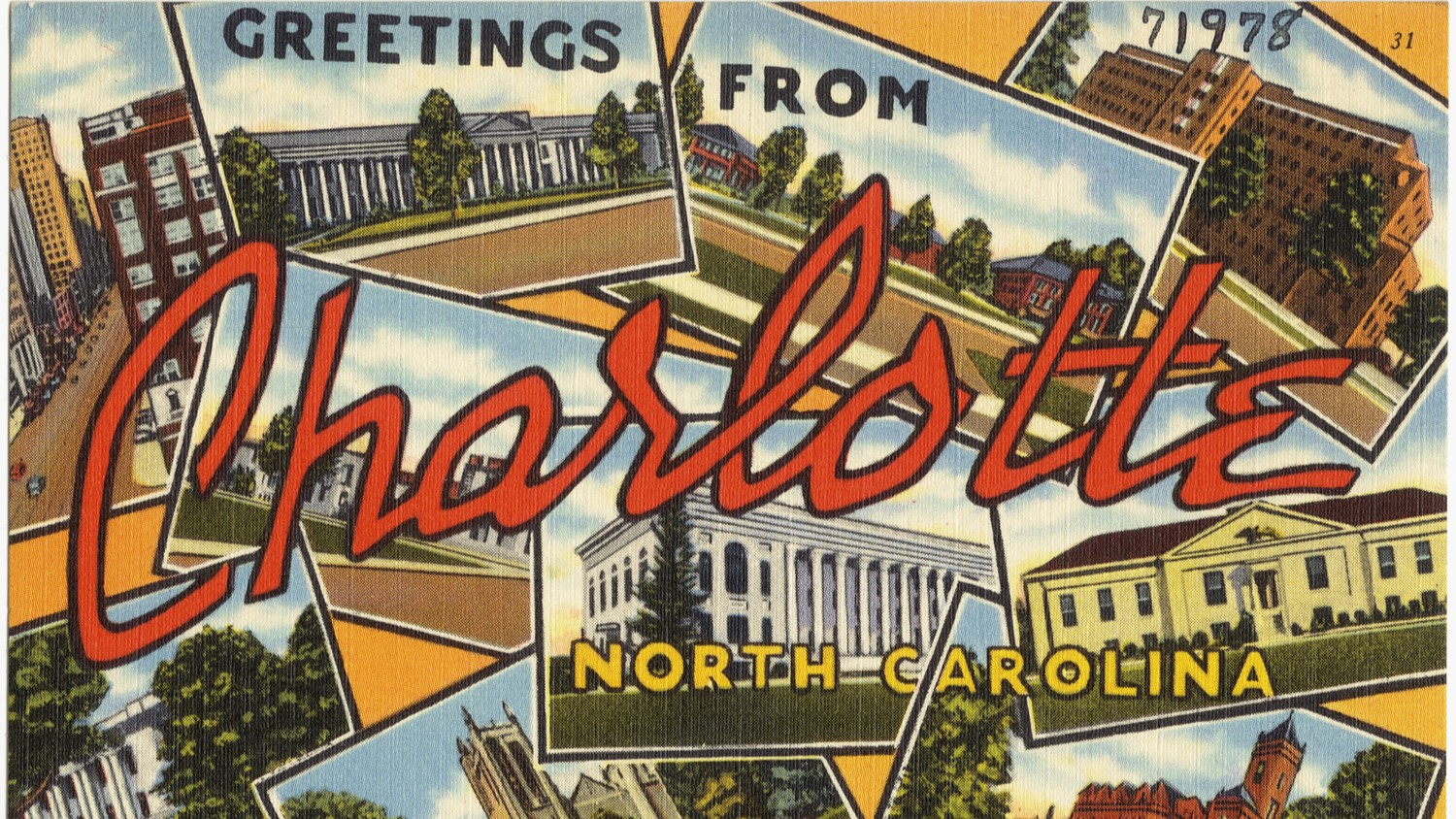The American electoral map is constantly in flux. Florida and Ohio, the quintessential swing states earlier this century, are currently uncompetitive. In recent years, Democrats have made some high-profile attempts at Texas, a long-time Republican stronghold that would singlehandedly redefine the American political map. In 2020, Democrats upset the decades-long Republican dominance in the South by nabbing Georgia in the presidential contest and both Senate races.
North Carolina offers a particularly useful case study for the short-term future of this ever-shifting American political landscape. Neighbors South Carolina and Virginia often overshadowed the state economically and politically in the early centuries of American history. This is portrayed comedically in the musical 1776, in which the North Carolina delegate Joseph Hewes repeatedly announces, ‘North Carolina respectfully yields to South Carolina.’
Symbolically, the three presidents born in North Carolina—Andrew Jackson, James K. Polk, and Andrew Johnson—migrated west and represented Tennessee in politics. Though North Carolina’s extensive coastline draws significant domestic tourism, European visitors tend to overlook the state in favor of other East Coast destinations. Nonetheless, the Tar Heel State, as it is called, has quietly become the ninth-largest U.S. state, a magnet for inward migration and business activity, and a coveted political prize.
Charlotte is the state’s largest city and America’s banking ‘second city,’ after New York. It is the headquarters of Bank of America and Truist Financial and the regional headquarters of other banks, like Wells Fargo. Charlotte Douglas International Airport is the seventh-busiest in the world. Overall, the Charlotte metro area is the fourth largest in the Southeast and one of the fastest growing in the entire country.
Raleigh is the state’s capital and second-largest city. It is part of the Research Triangle Park, so called because of the proximity of three major universities: the University of North Carolina at Chapel Hill, North Carolina State University (Raleigh), and Duke University (Durham). The resulting ‘triangle’ between these three universities is a hub of software and other tech firms, arguably the second largest such concentration outside of Silicon Valley. Accordingly, in 2021, Apple announced it would build an East Coast hub in the region.
The Piedmont Triad region, in the central part of the state, includes the cities Greensboro, Winston-Salem, and High Point. Once a major center of industries like tobacco, furniture, and textiles, the region has transitioned to economic sectors with a better long-term outlook, like healthcare, pharmaceuticals, and biotechnology.
To the east, the state borders the Atlantic Ocean and features an extensive coastline. The Outer Banks are a string of barrier islands and sand spits that jut into the ocean. This is the site of the famous Cape Hatteras Lighthouse and the Wright Brothers’ first successful manned flight in 1903. The area is a magnet for extensive tourism, particularly domestic. In the Southeast, Wilmington provides a seaport, one that is modest in size compared to East Coast peers.
In the west, the state forms part of the Appalachian Mountain range. Asheville, the largest city in that part of the state, is a destination for winter sports and recreation and a left-wing stronghold in an otherwise conservative region. The area was devastated last year when Hurricane Helene took an unorthodox course and battered the Appalachian Mountains.
Shifting Demographics
Like most states in the Southeast, North Carolina has a large black population and a politically critical mass of rural white Protestants. For decades, the demographics have been changing. A pleasant climate and ample job opportunities, particularly in the Charlotte and Research Triangle areas, have attracted transplants from northern states. The New York City-to-Charlotte migration alone nets the state an average of 6,500 new residents per year. In the two decades from 1990-2010, the state experienced population growth rates of approximately 20%.
After briefly visiting the state in 1980, Blessed Jerzy Popiełuszko, the Catholic priest and martyr associated with Poland’s Solidarity movement, wrote, ‘In the state of North Carolina, for four million people just one per cent is Catholic. The government law is not advantageous for Catholics.’[1]
Now over one million Catholics reside in the state (9 per cent of the population), a result of migration from northern states and immigration from Latin America. The regional accent has largely disappeared from the major metro areas, and cultural features from northern states have become entrenched. Many residents have retained affiliations, such as loyalties to sporting clubs, in their former states—or their parents’—in the North.
After a long period of Democratic Party dominance, Republican presidential candidates have won every presidential election but one since 1980, and all but two since 1968. These trends have reflected the party realignment that shifted the South from Democratic to Republican control in the second half of the twentieth century.
Democrats hoped North Carolina had reached its tipping point in 2008, when then-Senator Barack Obama won the state en route to his landslide victory. Other Obama flips, like Colorado, Nevada, and Virginia, have mostly remained in the Democratic column (President Trump won Nevada this year, the first time in 20 years the state voted for a Republican presidential candidate). Yet, North Carolina has narrowly remained a Republican presidential state, giving its electoral votes to Mitt Romney in 2012, and then three times to Donald Trump.
Republicans have benefited from the fact that, while North Carolina has much in common with states like Virginia and Georgia, it does not have a metro area that registers on the global scale, like Washington, D.C. or Atlanta. Charlotte and the Research Triangle Park region are centers of specific industries, but they are still modest in size. At the 2020 census, the Charlotte combined statistical area ranked 19th in the United States, with a population of 2.6 million; the Research Triangle came in 31st, at 2.2 million; and the Piedmont Triad ranked 37th, with a combined statistical area of 1.7 million. A visitor won’t find eight-lane interstate highways or two-hour commutes in these places. These metro areas have remained just small enough that North Carolina’s conservative rural areas can still overcome them—for now.
As in the presidential contests, Republicans have been victorious in recent U.S. Senate races in the Tar Heel State. Currently both senators are Republicans. Senator Thom Tillis, first elected in 2014, is known as a moderate and occasional critic of the Trump wing of the party; Democrats are targeting his seat as perhaps their most likely pickup in 2026, and some conservatives are calling for a primary to challenge his status as the Republican nominee. Senator Ted Budd, elected in 2022, is known as a conservative, and he replaced the retiring three-term Republican Richard Burr. Only one North Carolina Democrat has won a U.S. Senate seat in this millennium: Kay Hagan, who rode Obama’s coattails to victory in 2008 and lost her reelection campaign to Tillis in 2014.
Gubernatorial Chaos
Gubernatorial races have unfolded differently. North Carolina elected Democratic governors for much of the twentieth century, which was common in southern states; more unusual has been the state’s propensity to continue electing Democratic governors after the thorough political realignment that made the South a reliable bastion of the Republican Party.
‘Ticket-splitting in North Carolina has gone on for decades,’ noted Gary D. Robertson in AP News. ‘Voters have long been comfortable with Democrats running state agencies but less at ease with the liberal wing of the national Democratic Party.’
Furthermore, ‘North Carolina Democratic governors have built up strong political infrastructure on the state level that is able to effectively communicate, raise funds, and recruit political talent,’ according to the Carolina Journal’s Dallas Woodhouse.
A Republican did not hold the governor’s office in the twentieth century until 1973. From that year until the present, the state has had just three Republican governors, with four terms among them.
The last of those Republicans, former Charlotte Mayor Pat McCrory, was elected in 2012 and seemed likely to win a second term in office. In his reelection year of 2016, Charlotte passed a radical city ordinance spurning gender distinctions. The Republican-controlled legislature responded with House Bill 2, which mandated bathroom usage in accord with biological gender. Governor McCrory signed House Bill 2 into law, and activists quickly made it a national issue.
Corporations like PayPal and Deutsche Bank threatened to cease business operations in the state. The National Basketball Association pulled its All Star Game from Charlotte. Musical acts like Bruce Springsteen and Pearl Jam canceled North Carolina concerts. Six left-wing states and numerous American counties imposed travel bans for government employees. During the election campaign, North Carolinians encountered a barrage of ads claiming the law would entail economic ruin for their state. The McCrory campaign responded, ‘It’s just common sense.’
Ultimately, the Democratic candidate Roy Cooper won by approximately 10,000 votes, despite concurrent victories by Donald Trump and Republican Senator Richard Burr. McCrory’s governorship was a prominent scalp for the unholy political alliance of activist groups, corporate interests, and pop culture.
Eight years later, McCrory probably would have won in an atmosphere of identity-issues burnout. As if to confirm this hypothesis, milquetoast Ohio Republican Governor Mike DeWine—cut from the same political cloth as McCrory—signed a very similar bill into law in November. The Ohio law, predictably, garnered far less public attention than North Carolina’s 2016 effort, suggesting McCrory’s common sense came in the wrong place at the wrong time.
The infamous bathroom saga would not prove the last foray into national consciousness of North Carolina gubernatorial politics. In 2018, North Carolinians became acquainted with Mark Robinson, a factory worker and part-time student who gave a rousing pro-gun speech at a Greensboro city council meeting. The speech went viral, and Robinson quickly became a recognizable advocate for gun ownership and conservative politics. In 2020, he was elected Lieutenant Governor of North Carolina, the second-highest elected position in the state.
Robinson was controversial from the start. In another widely circulated speech at an evangelical church, he asserted, ‘Two-plus-two don’t equal transgender. It equals four. You need to get back to teaching [schoolchildren] how to read, instead of teaching them how to go to hell. Yeah, I said it, and I mean it.’ This approach endeared him to conservatives but created an uphill battle in winning over professional-managerial-class suburbanites. Robinson won the Republican primary for the 2024 governor race, and polls regularly showed him trailing Ivy League-educated attorney Josh Stein, the Democratic nominee.
When Robinson won his 2020 race, he encountered limited scrutiny, as campaign resources concentrated on higher-profile contests. A gubernatorial race in a key state is a completely different proposition, a lesson Robinson learned the hard way in 2024.
On September 19, the day before the deadline to drop out of the race, CNN published a story alleging Robinson posted damaging comments, including referring to himself as a ‘black NAZI,’ on a pornographic website between 2008 and 2012. The Stein campaign reportedly leaked the story to CNN. That same day, POLITICO published a story alleging an email address belonging to Robinson was registered on a website for married people seeking extramarital affairs. Any prospect of victory evaporated with the ensuing scandal, and the Trump-Vance campaign informed Robinson he was unwelcome at campaign events.
Ultimately, Robinson barely topped 40 per cent of the vote and lost by nearly 15 percentage points, a staggering deficit in a state President Trump won. Republicans hold fresh memories of gubernatorial power after Governor Roy Cooper presided over the state’s Covid lockdowns, but they will endure at least another four years of frustration in state governance, and now they must prepare for perhaps the nation’s most fiercely contested Senate race in 2026.
The 2024 Presidential Race in North Carolina
As the 2024 presidential contest came into focus, North Carolina drew constant attention, as it has for two decades. Polls suggested a tight race in the Tar Heel State, but it was one of the swing states where Donald Trump most consistently led. Trump enjoyed a lead with four major pollsters that reported aggregate results.
The state and federal government responses to Hurricane Helene and the ability of Western North Carolinians to vote in the storm’s aftermath became widely discussed topics in the presidential race. The Robinson scandal led many to speculate on how much Trump’s candidacy might be damaged. All four presidential and vice-presidential candidates were mainstays in the state in the weeks leading up to Election Day.
One week before Election Day, the Harris campaign pulled millions of dollars of advertising from North Carolina. The campaign had reserved $2.7 million for a final push in the state, but it ultimately canceled $2 million of that spending. At the time of that decision, registered Democrats had cast over 340,000 fewer votes than at the same point in 2020, while registered Republicans had cast 9,000 more votes. It appeared a strong indicator that the campaign did not think Vice President Harris could win the state.
As polls proved to underestimate Trump’s support, it was no surprise that comparatively Trump-friendly North Carolina was the first swing state that news networks called on Election Night. Ultimately, President Trump won the state by a margin of 50.86 to 47.65 percent, or 183,000 votes, and collected its 16 electoral votes.
According to the Carolina Journal, ‘almost 74 per cent of North Carolina’s 7.7 million registered voters cast a ballot.’
Roadmap for 2025 and Beyond
‘North Carolina is a swing state, and I think it’s going to continue to be one, and of course, that puts it in a minority of states and gives it outsized importance,’ columnist Ramesh Ponnuru told the Carolina Journal. ‘It means the presidential candidates are going to pay a lot of attention to what goes on here, and it also means that North Carolina is likely to have a more hotly contested senate and gubernatorial races than a lot of other states have these days. This comes with pros and cons, and if North Carolinians don’t like seeing a barrage of political ads every two years, then maybe they need to pick one party or the other to avoid, but I don’t think that that’s going to change anytime soon.’
‘While North Carolina Republicans will control the dominant policymaking branch of government for the foreseeable future, a GOP-dominated legislature makes re-election for Stein in 2028 more likely than not,’ according to North Carolina journalist Dallas Woodhouse. ‘Despite a net loss of nearly 700,000 registered voters as compared to state Republicans over the last decade, NC Democrats remain competitive on a statewide basis.’
North Carolina is certain to retain the attention of political operatives and analysts in coming elections. Perhaps just as critical will be the interactions among the incoming Trump administration, the Democrat-controlled governor’s mansion, and the Republican-controlled state legislature in Raleigh.
In an interview with ABC News, incoming Governor Josh Stein stated he would ‘wait and see’ whether his state government would cooperate with the Trump administration’s deportation policies. In November, the state legislature approved a measure that requires all sheriffs in the state to cooperate with U.S. Immigration and Customs Enforcement (ICE) in deportation proceedings. If Stein chooses to combat the Trump administration’s policies, he likely will be able to complicate deportation activities.
Like other swing states, North Carolina is the site of a political showdown over voter-identification procedures. State law requires photo identification for voting, which has led some leftist commentators to issue claims of voter suppression. The Raleigh News & Observer boldly claimed that ‘North Carolina rejected 2,000 ballots for lack of voter ID,’ an assertion that Mitch Kokai of the John Locke Foundation, a North Carolina policy think tank, debunked. A three-judge panel is currently presiding over a legal dispute related to the state’s 2018 amendment to the state constitution on voter identification, a measure voters overwhelmingly approved. The outcome of this legal jockeying will impact how elections are managed in the state and could prove key in determining the outcome of close races like Governor Roy Cooper’s razor-thin 2016 victory.
For all the changes in campaigning, technology, and legal provisions, some grassroots political activity remains constant. North Carolina Republicans delivered some old-fashioned groundwork that benefited the Trump campaign in 2024. From the beginning of that four-year cycle until Election Day, Republicans gained 180,000 registered voters in the state, while Democrats lost 42,000. In fact, both registered Republicans and unaffiliated voters outpaced registered Democrats in 2024 early voting, a period when Democrats traditionally win by large margins. While North Carolina Democrats enjoy some critical demographic tailwinds, recent election results suggest demographic destiny is likely an overrated idea in American politics.
European observers would do well to pay attention to North Carolina, both for its tremendous aesthetic and natural beauty and for its outsized impact on American politics.
[1] Judith Kelly, Just Call Me Jerzy: Popiełuszko in the United States and Canada, Yellow Springs, Ohio, fxBEAR Publishing, 2016







